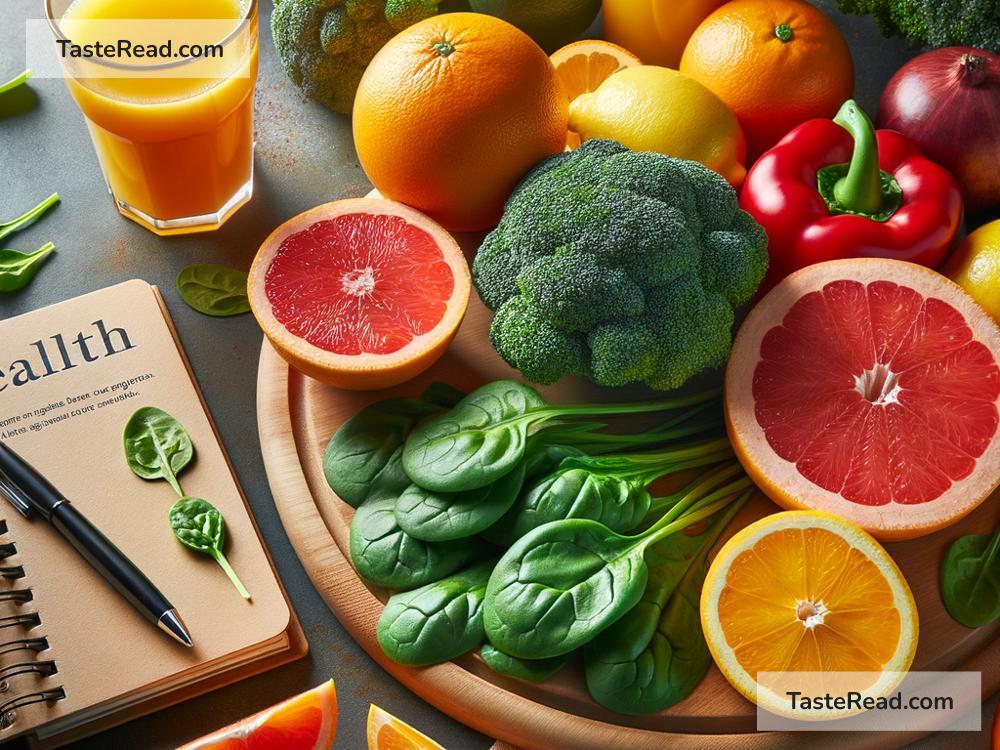The Role of Vitamin C in Collagen Formation: A Simple Explanation
Vitamin C is one of the most well-known nutrients out there. We hear about it all the time—how it boosts immunity and helps fight colds. But, did you know that vitamin C plays a vital role in keeping your skin, bones, and joints strong and healthy? It does this by helping your body create collagen. Collagen is like the glue that holds your body together, and without enough vitamin C, your body can’t produce it properly.
In this blog post, we’ll take a deep dive into how vitamin C is essential for collagen formation, why collagen is important for your health, and how you can make sure you’re getting enough of this critical nutrient.
What Is Collagen?
Collagen is a protein that acts as the building block for many parts of your body, including your skin, bones, muscles, tendons, and connective tissues. You can think of collagen as the scaffolding that gives your body structure and strength. It’s what keeps your skin firm, your bones sturdy, and your joints flexible.
There are many types of collagen, but they all serve the same basic purpose—providing support and stability to your tissues. Collagen is incredibly abundant in the human body. In fact, it makes up about 30% of the protein in your body! However, your body needs the right tools to make collagen, and one of the most crucial tools is vitamin C.
How Does Vitamin C Help Make Collagen?
For your body to form collagen, it needs to go through a complex chemical process. To put it simply, collagen is made from amino acids (the building blocks of proteins), but these amino acids need to be “assembled” properly to create a strong and functional collagen fiber.
Here’s where vitamin C comes in:
-
Vitamin C Helps Enzymes Do Their Job
The process of collagen formation involves specific enzymes that add hydroxyl groups to certain amino acids, such as proline and lysine. This step strengthens the collagen structure and makes it stable. Vitamin C plays a key role in “activating” these enzymes so they can work effectively. Without vitamin C, this important step can’t happen, and the collagen your body produces will be weak or incomplete. -
Vitamin C Protects Collagen From Damage
Vitamin C is also an antioxidant, which means it fights off harmful molecules called free radicals. Free radicals can damage collagen and other proteins in your body. By neutralizing these free radicals, vitamin C helps protect the collagen you already have while supporting the creation of new collagen.
Why Is Collagen Important?
Collagen is essential for many reasons. Let’s break it down into a few simple categories:
-
Healthy Skin: Collagen keeps your skin firm, elastic, and youthful. As you age, your body produces less collagen, which is why you may notice wrinkles and sagging skin over time. Getting enough vitamin C helps support collagen production, which can slow down this aging process.
-
Strong Bones: Collagen is a key component of your bones, giving them their structure and flexibility. Without enough collagen, bones can become brittle and prone to fractures.
-
Joint Support: Collagen acts as a cushion in your joints, helping them move smoothly and painlessly. It’s a major part of the cartilage that protects your joints from wear and tear.
-
Wound Healing: Whenever you get a cut or injury, collagen plays a major role in healing your skin and tissues. It literally helps repair the damage and close the wound.
Signs of Vitamin C Deficiency
If your body doesn’t get enough vitamin C, collagen production can slow down or stop altogether. This can cause a range of problems. A severe vitamin C deficiency is called scurvy, a disease that leads to weak skin, bleeding gums, poor wound healing, and brittle bones. Although scurvy is rare today, some people may still experience mild vitamin C deficiency that can affect collagen production.
Signs of low vitamin C levels include:
– Dry, rough skin
– Wrinkles and loss of skin elasticity
– Slow wound healing
– Joint pain or stiffness
– Weakened immune function
How Can You Get Enough Vitamin C?
Luckily, getting sufficient vitamin C is fairly easy for most people. Vitamin C is abundant in many fruits and vegetables, such as:
– Oranges and other citrus fruits
– Strawberries
– Kiwi
– Bell peppers (especially red ones)
– Broccoli
– Tomatoes
– Kale
If your diet is rich in these foods, you’re likely getting plenty of vitamin C. However, some people may need additional supplementation, especially if they have certain medical conditions or dietary restrictions.
Conclusion: Teamwork Between Vitamin C and Collagen
The relationship between vitamin C and collagen is a perfect example of teamwork in your body. Vitamin C helps build and strengthen collagen, which in turn keeps your skin, bones, and joints healthy. Without vitamin C, your body simply can’t make strong and functional collagen.
So, the next time you eat an orange or enjoy a fresh vegetable salad, remember: you’re doing your whole body a favor, from your skin to your bones and everything in between. Making sure you have enough vitamin C is one of the simplest ways to support collagen formation and maintain your overall health and well-being!


